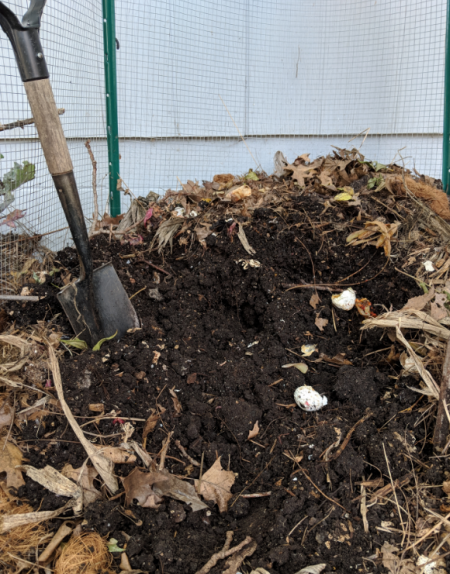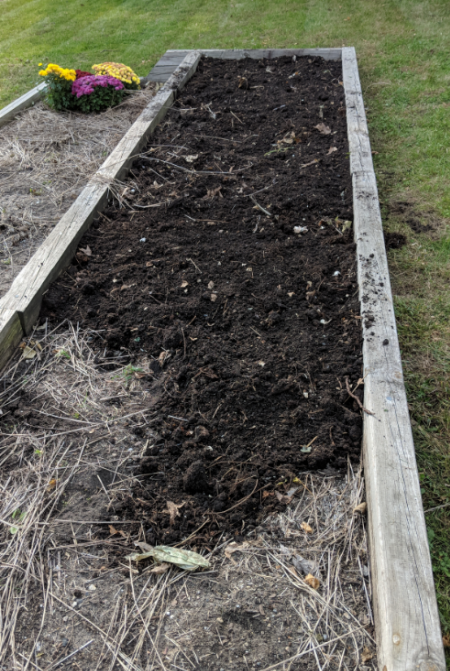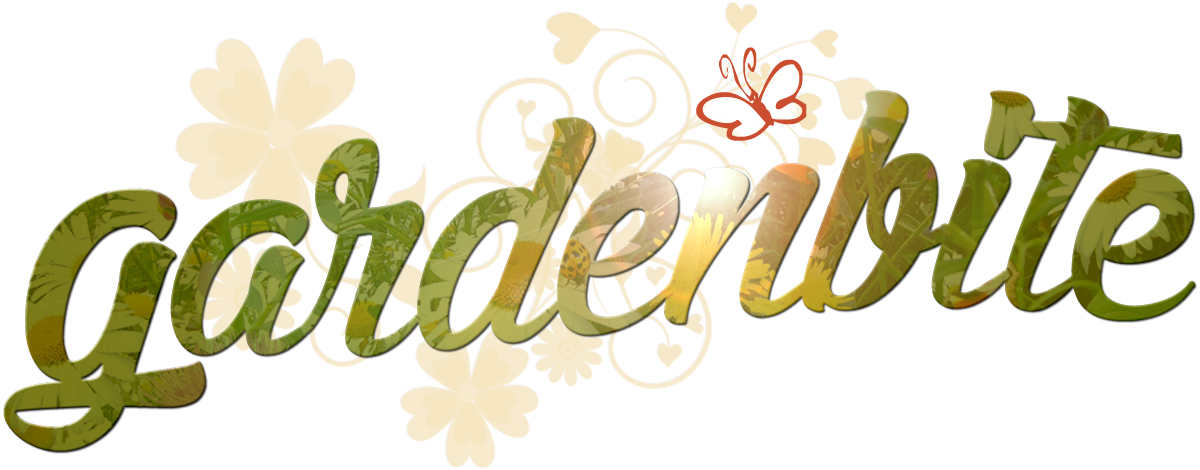Click below to listen to my 2 min. Garden Bite radio show: Vegetable harvest tips
Audio PlayerBy this time your vegetable garden is nearly compost, or is it?
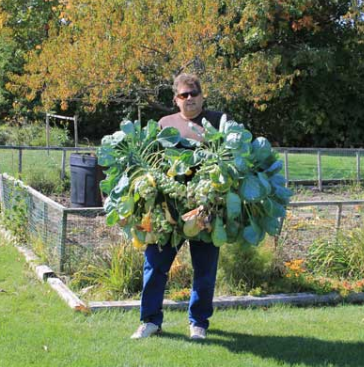
Brussel sprouts are always late in the season. I’ve grown ‘Octia’, and while they were good, for me, the plants take up more garden space than I care to give up! Passing the Relish, is a Wisconsin gardener with tips on growing brussel sprouts.

Harvest the root crops you plan on eating soon but you can leave some carrots, late planted radishes, beets and turnips in the ground for winter harvest.
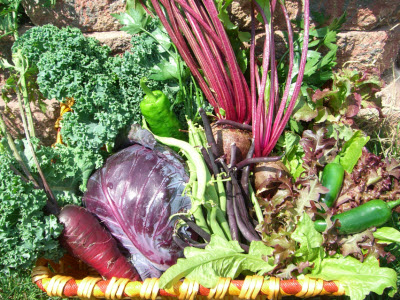
Once the topsoil has become crunchy with frost, mulch those root crops with straw or evergreen branches. Then harvest at will or until the ground has frozen to the point you can’t dig them out. You could be munching on a fresh carrot in December!
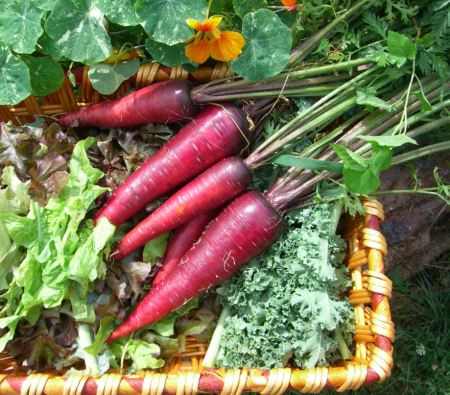
If you plan on keeping your tomatoes green, store them in a cool spot about 55 degrees in humid air.– You can also store sweet potatoes and winter squash this way.—I once lived in an old farmhouse that still had a root cellar, it was the best room in that house. Some folks are making a modern version of the root cellar in their newer homes. You can do this by insulating a small basement room that has 2 outside walls and closing off heat to the room. There is a wealth of information in the following articles:
Mother Earth News – Build a Basement root cellar
Common Sense Home – Root Cellars 101
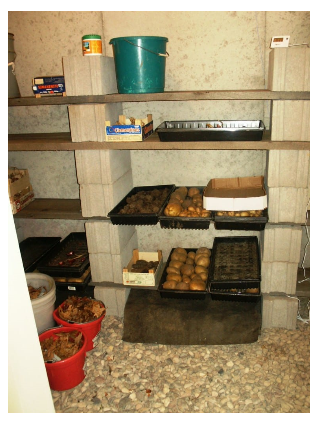
If you’ve got an asparagus bed, leave the stems and leaves. They help catch snow which makes for an excellent mulch. – If your rhubarb is still around you can make one more rhubarb harvest before a killing frost! It won’t hurt your plant and the stems are still good. Once we’ve had a hard frost, cut the plant back and remove any debris.
Cut back any vines or stalks from your veggie garden to eliminate any disease issues and get that compost working in your veggie garden. I leave behind some of the green beans that I didn’t get at, the fallen leaves I’ve shredded. I could also fork in grass clippings.
